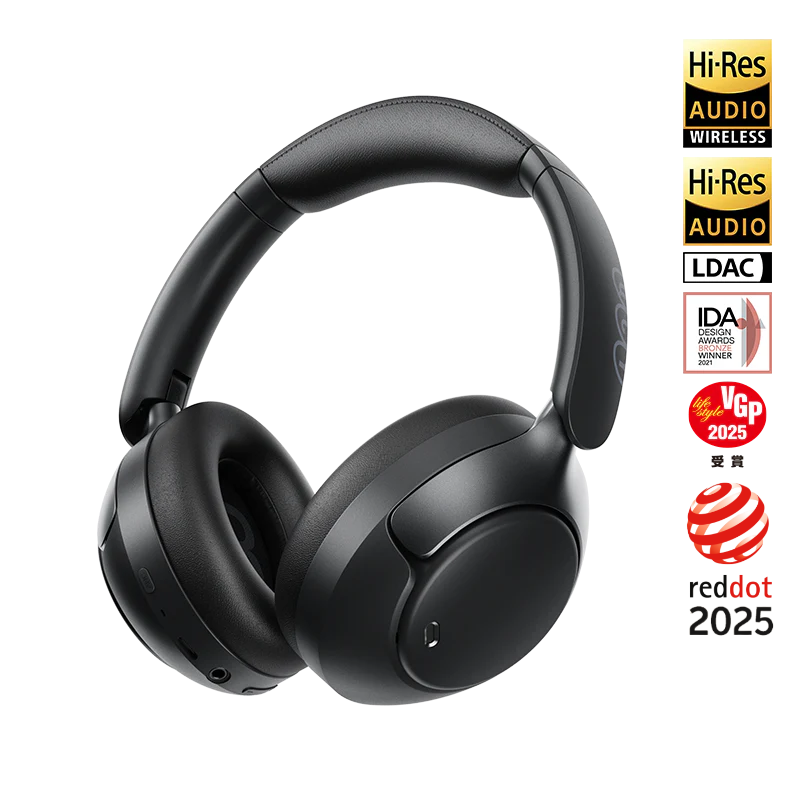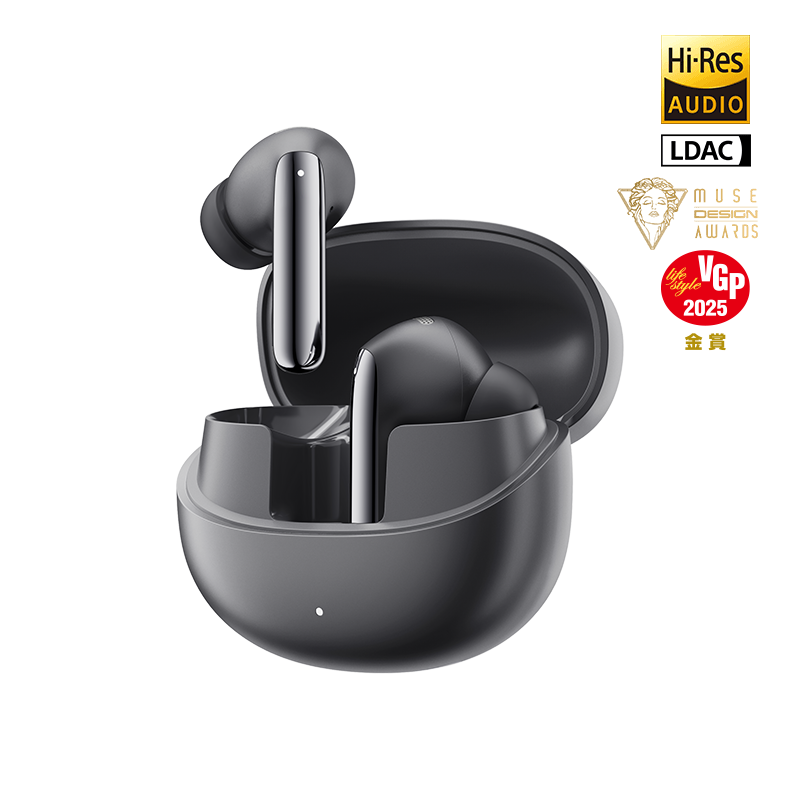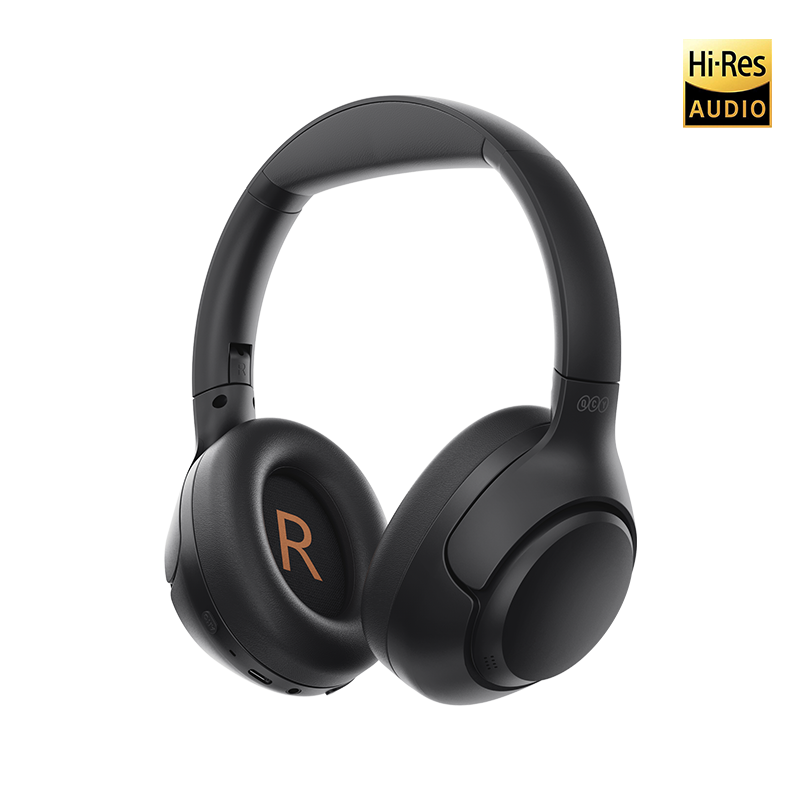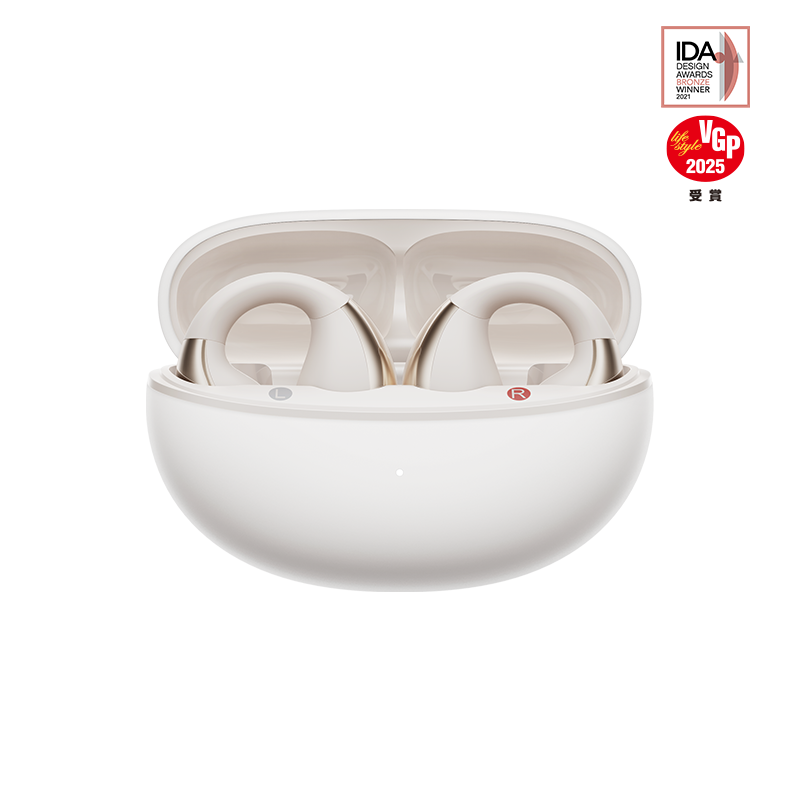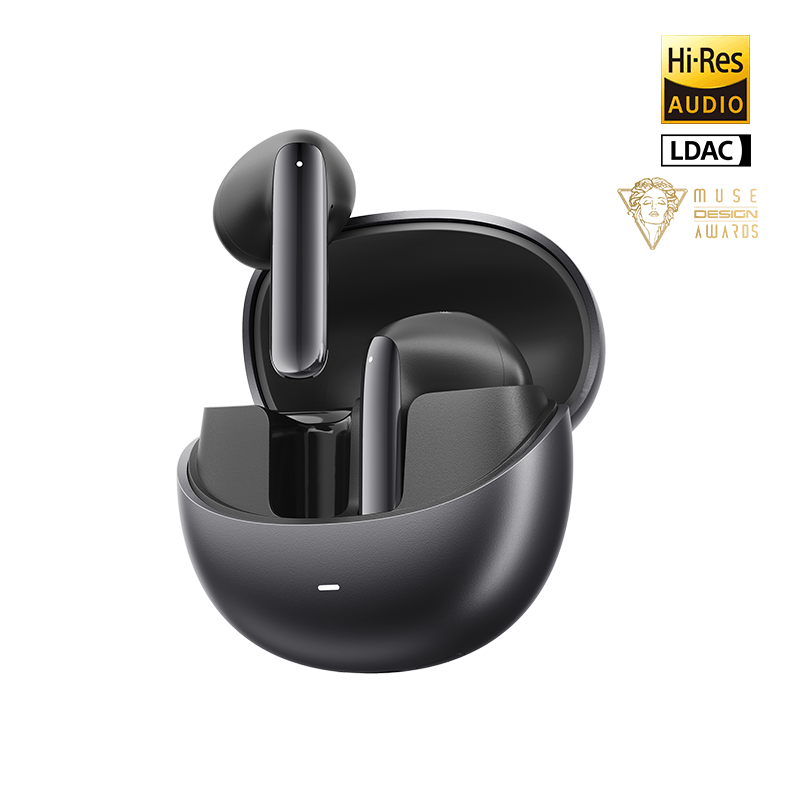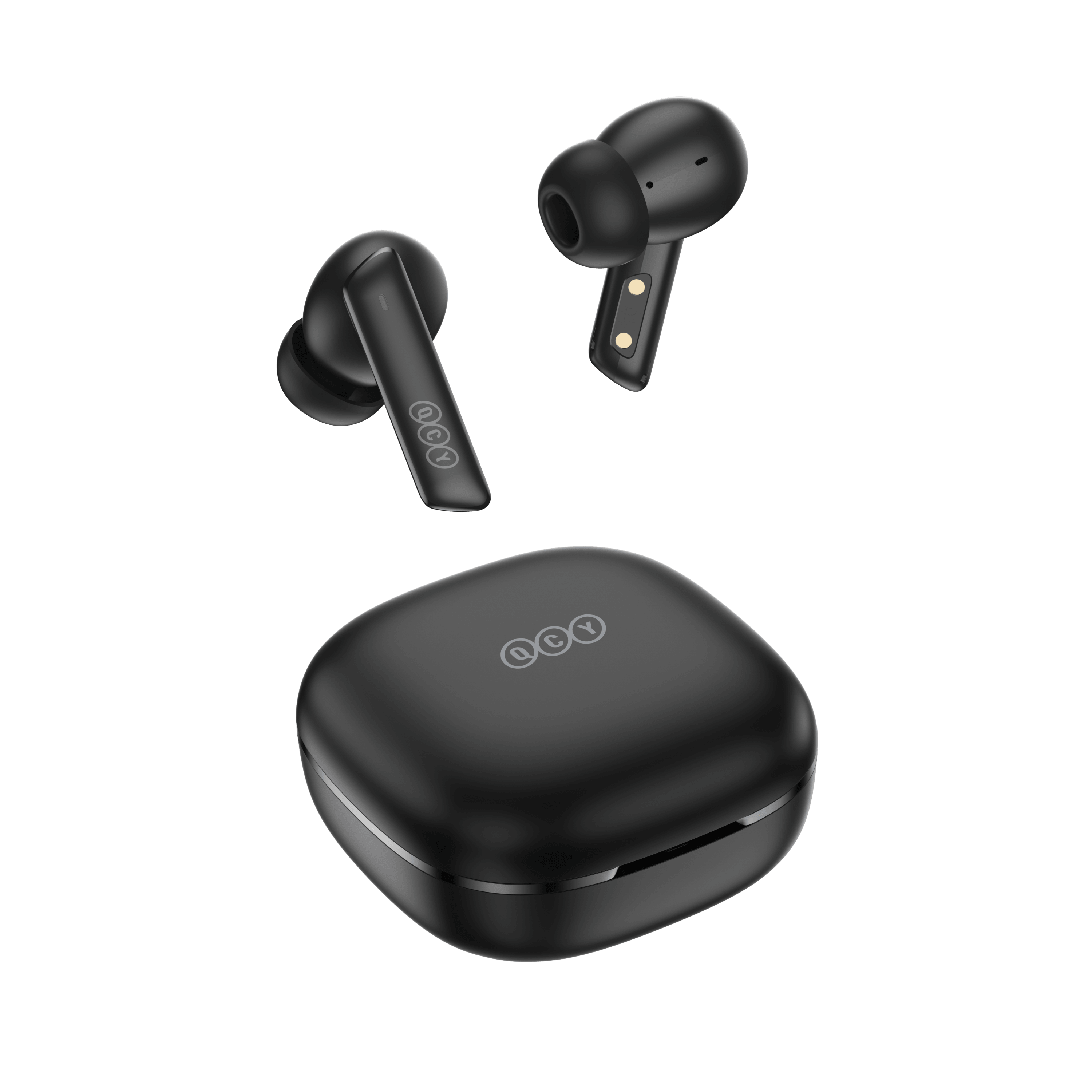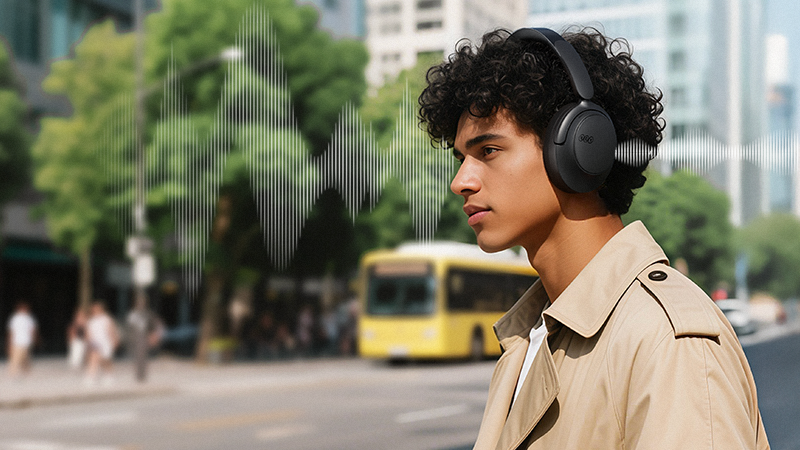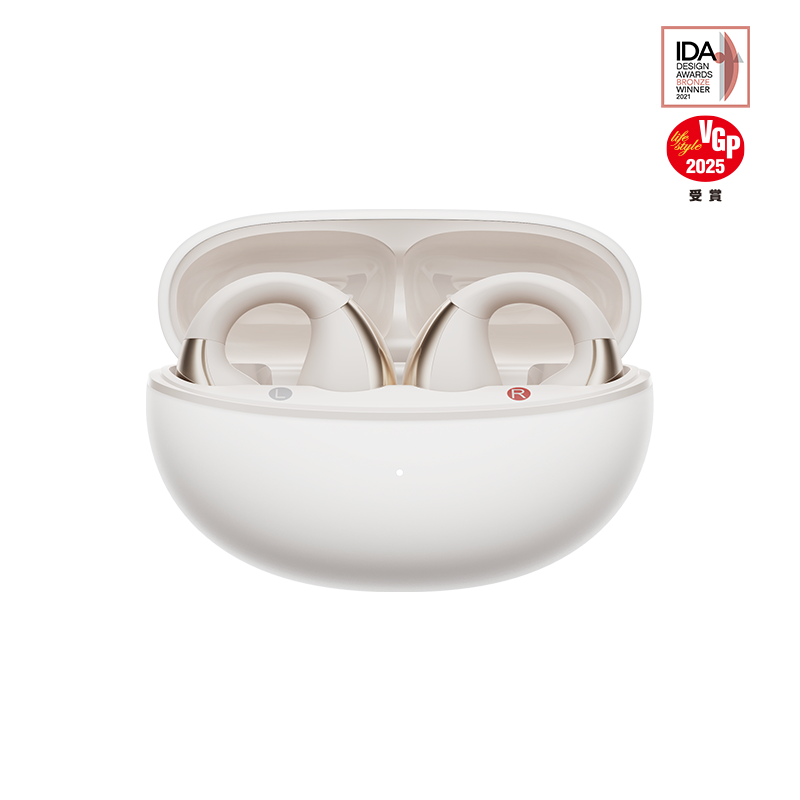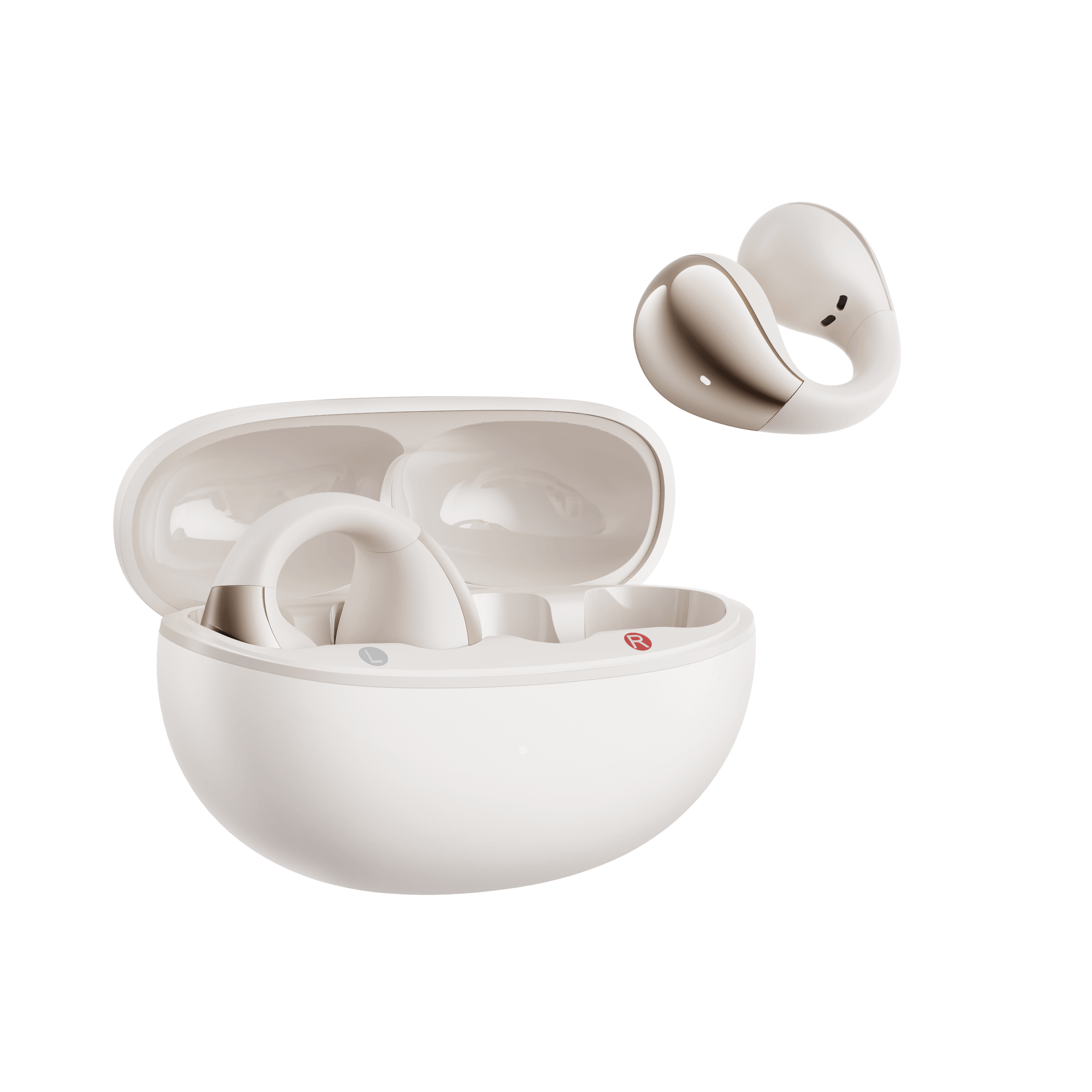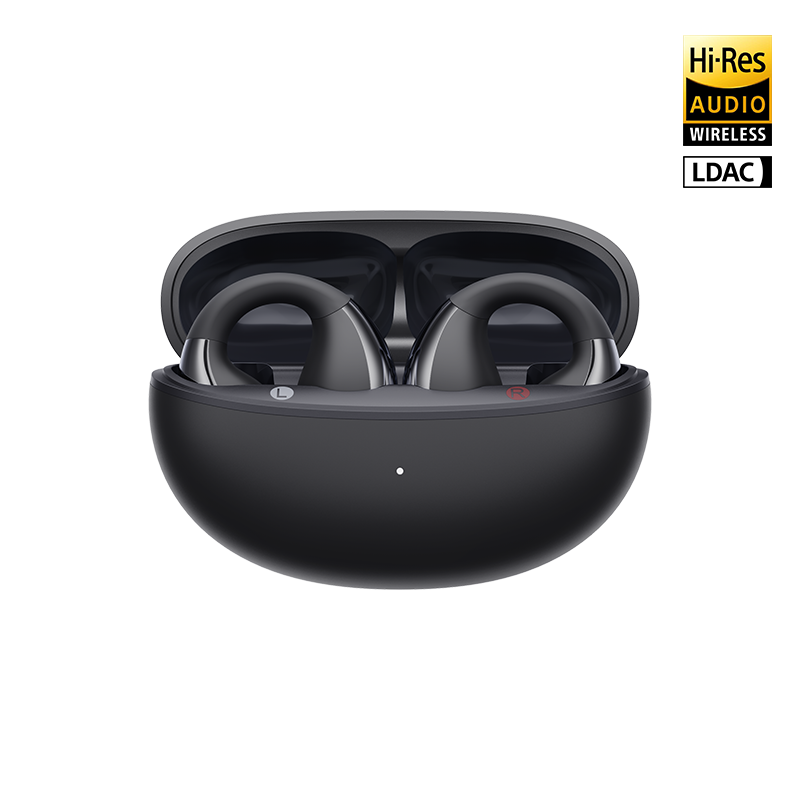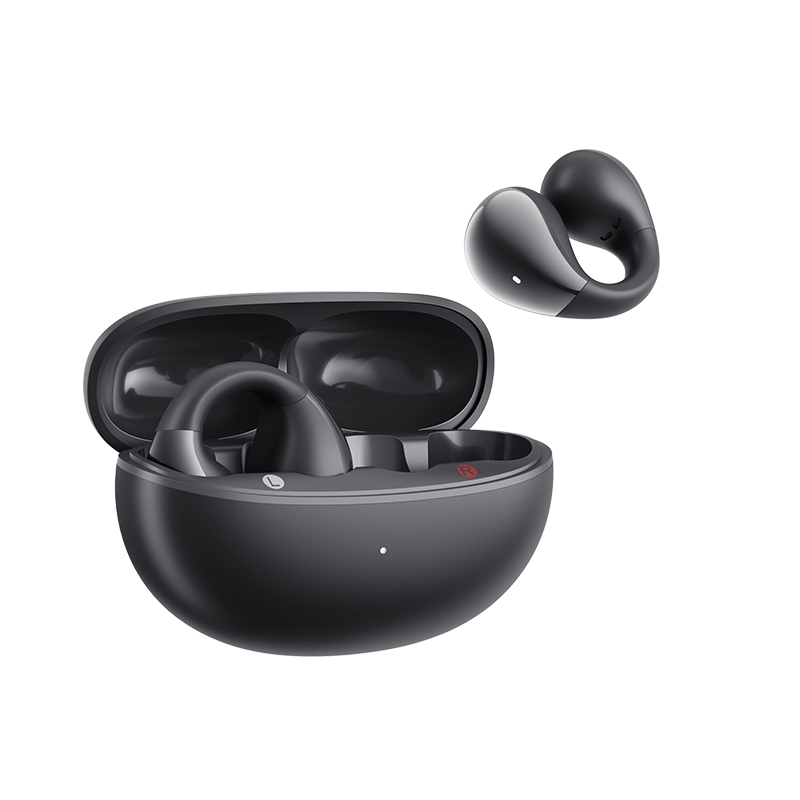
When most people think of earbuds, they picture the classic in-ear design: a small piece you pop into your ear canal that blocks outside noise and lets you dive deep into your music. But what if we told you there’s a totally different style—one that doesn’t go into your ears at all?
Enter open-ear earbuds.
These unique headphones are changing how we listen to music, take calls, or stay connected while still being fully aware of the world around us. If you’re someone who jogs outside, works in an open office, commutes on busy streets, or just doesn’t like the feeling of in-ear buds, open-ear might be a game changer.
Let’s break it down.
What Exactly Are Open-Ear Earbuds?
Open-ear earbuds are designed to rest near or slightly above your ear canal without actually going inside it. This design allows you to listen to audio while still hearing what’s going on around you.
There are a few types of open-ear designs, including:
- Air conduction earbuds: These sit outside the ear and direct sound toward your ear canal using tiny speakers.
- Bone conduction earbuds: These rest on your cheekbones and send sound vibrations through your bones, bypassing your eardrum entirely.
Whichever design, the goal is the same: keep your ears open to the world, literally.
Why Do People Choose Open-Ear Earbuds?
It’s not just about style—it’s about comfort, safety, and flexibility. Here are the top reasons more and more people are making the switch:
1. Stay Aware of Your Surroundings
Runners, cyclists, and commuters love open-ear earbuds because they let in outside sounds like traffic, alerts, and conversations. It’s the safer option for anyone on the move.
2. More Comfortable for Long Listening
Some people just can’t get used to in-ear designs. Open-ear models avoid ear fatigue and are a great option if your ears feel sore after long use.
3. No Pressure in the Ear Canal
In-ear buds often create a "plugged" feeling that can be uncomfortable, especially over time. Open-ear earbuds avoid that sensation entirely.
4. Better for Calls and Multitasking
Need to keep an ear open at work or while watching the kids? Open-ear earbuds let you stay engaged in your environment while still taking calls or listening to music.
Do Open-Ear Earbuds Sound Good?
Let’s be honest: open-ear sound isn’t always as isolated or bass-heavy as traditional earbuds, especially in noisy environments. Since they don’t seal the ear canal, you might lose some depth in the low end.
But modern open-ear designs have come a long way.
High-quality drivers and clever acoustic engineering now allow for rich, balanced sound—especially in quieter environments like an office or home.
Some open-ear models even use directional audio, meaning the sound is aimed directly at your ears with minimal leakage, so people around you won’t hear your podcast or playlist.
Are Open-Ear Earbuds Right for You?
They might be perfect if you:
- Run or bike outside and need to hear traffic
- Work in a setting where awareness is key
- Find in-ear buds uncomfortable or irritating
- Want a more natural listening experience
- Make lots of calls and want to stay aware during conversations
But if you’re someone who wants maximum noise cancellation or needs heavy bass for EDM or hip-hop playlists, you might still prefer in-ear ANC models.
Air Conduction vs Bone Conduction: What's the Difference?
People often confuse open-ear earbuds with bone conduction headphones. All bone conduction headphones are technically open-ear, but not all open-ear headphones use bone conduction.Because open-ear headphones include either bone conduction design or air conduction design.
| Feature | Air Conduction | Bone Conduction |
|---|---|---|
| How sound is delivered | Sound waves are transmitted through the air, enter the ear canal, cause the eardrum to vibrate, and finally transmit to the auditory system. | By converting sound into vibration signals, it is transmitted to the auditory system through the skull and facial bones. |
| Sound quality | More traditional, with clarity and detail | Sometimes less rich in tone, especially bass |
| Comfort | Lightweight, no vibration | Some feel vibration during heavy playback |
| Use case | Great for daily wear, music, calls | Often used for workouts or hearing aid applications |
| Design style | Typically true wireless, no cable between earbuds | Commonly connected with a wraparound band for stability |
| e.g., | QCY Crossky Series design | Shokz OpenMove design |
Meet the QCY Crossky Series: Open-Ear Done Right
At QCY, we’ve been exploring what it means to create lightweight, secure, and great-sounding open-ear earbuds. Our Crossky C30 and Crossky C30S are built for the modern lifestyle:
- ✅ Open-ear clip-on design that stays secure even during runs or workouts
- ✅ Up to 40 hours of playtime with the case (C30S)
- ✅ Sweat-resistant and breathable for all-day comfort
- ✅ Bluetooth 6.0 support for faster, smoother connections
- ✅ Ultra-lightweight so you forget you’re even wearing them
We know that not everyone likes having something stuck in their ears. With Crossky, you don’t have to choose between comfort and sound.
Open-Ear vs OpenFit: What's the Difference?
Open-ear: This is a broad term that refers to earphones designed not to be inserted into or completely close the ear canal, allowing external sound to enter naturally to maintain environmental awareness. Open-ear headphones can include a variety of technical implementations, such as air conduction or bone conduction.
OpenFit: This is the name of a specific product series under the Shokz brand.
Open Ear vs. Other Earbud Types
To understand the appeal of open ear earbuds, let’s compare them to other common earbud types:
| Feature | Open Ear Earbuds | In-Ear Earbuds | Over-Ear Headphones |
|---|---|---|---|
| Ear Canal Interaction | No insertion, fully open | Inserts into ear canal | Covers entire ear |
| Ambient Sound | Fully audible | Blocked (unless transparency mode) | Blocked |
| Comfort | High (no ear pressure) | Moderate (can cause fatigue) | Moderate (can be heavy) |
| Sound Isolation | Minimal | High (noise-canceling options) | High |
| Use Case | Sports, outdoor, multitasking | Music, travel, focus | Immersive listening, studio |
Open ear earbuds stand out for their balance of audio delivery and environmental awareness, making them a unique alternative to in-ear and over-ear options.
Final Thoughts: More Freedom, Less Fatigue
Open-ear earbuds aren’t just a niche trend—they’re a growing category with real benefits. As more people seek comfort, safety, and versatility, these designs offer a refreshing alternative to the typical earbud experience.
If you’ve never tried them before, it might be time to break free from the in-ear world. Who knows? You might find yourself wondering why you didn’t make the switch sooner.
🎧 Explore open-ear freedom today.
👉 Browse QCY open-ear earbuds














